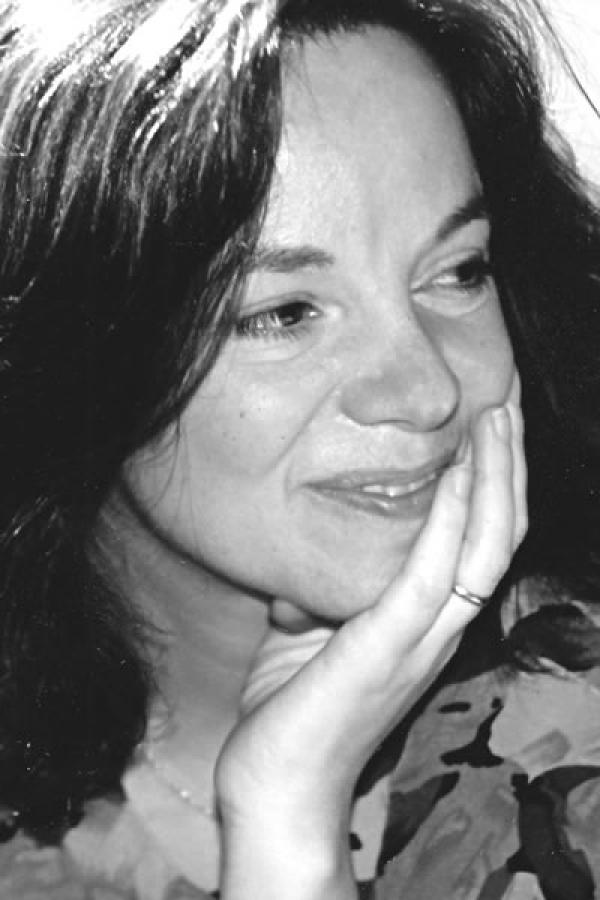Hester Velmans

Photo by P.R. Cherneff
Bio
Hester Velmans is an author and translator specializing in contemporary Dutch and French literature. Born in the Netherlands, educated in Switzerland and England, and now living in western Massachusetts, she has been translating the work of authors such as Lulu Wang, Renate Dorrestein, Stefan Brijs, Isabel Hoving, Maria Stahlie, and Bernard du Boucheron for British and American publishers for more than 15 years. Her translation of Dorrestein’s A Heart of Stone won the Vondel Prize for Dutch Translation in 2001. She is also the author of the popular children’s book Isabel of the Whales and its sequel Jessaloup’s Song. Forthcoming translations include Saskia Goldschmidt’s The Hormone Factory, Hedda Kalshoven’s I think so often about you, and Daylight by Marion Pauw.
Translator's Statement
With death snapping at his heels, Herman Franke wound up adopting a daring, unorthodox narrative structure for this, the last of a planned open-ended, multi-volume novel, interweaving the first-person narrator's endless stream of stories with jottings, musings, and stated intentions. They allow both the character and his author to sketch the broad outlines of stories that might otherwise have got away.
Even now, three years since his untimely death, Franke’s intellectual legacy lives on in the Netherlands in articles, lectures, and panel discussions. Besides this last novel, two other books have come out posthumously, one the correspondence between Franke and the (equally fierce) writer Manon Uphoff, the other a collection of essays titled The Soul of the Netherlands. Over lunch with his publisher, I discovered that Franke’s greatest regret (and fury) was that his work had never made it into English. I found myself promising both the publisher and Franke’s widow that I would find a way to bring attention to his work in the U.S., and I am very grateful that the NEA grant will be making this possible.
from Slow Light by Herman Franke
[translated from the Dutch]
Incurably sick. Not much time left to live. That's just terrible for the boss, of course, but where does it leave me? I am his creation, true. But does that mean I’ve got to let him bump me off as well? When I was just starting to get going, too; I was on a roll. I'm nowhere near finished yet, neither with myself nor with all those other folks inside me. I was counting on at least ten volumes. An open-ended serial novel, he'd promised me. And, what, now I'm supposed to shut up all of a sudden, just like that? It isn't going to happen. I refuse! Before the final curtain comes down, I'm determined to disgorge it all, I won't be sent into the afterlife with a stomach full of untold stories just because he has to chuck it in, you know? I came into this world a writer of portraits, delivered from the looking-glass womb of a fictitious mother, and I'll die in a book that ends where it all began, on the threshold of time. Either you're an artist or you aren't. A promise is a promise. Inn't it?
Shitshitshitshitshit.
Actually, I didn't think the boss was getting on with it that well anyway. He would spend days fretting over what was supposed to happen next, while I already knew; I was way ahead of him. He was afraid they wouldn't understand me if he let me have my way, which is nonsense because people understand more than you think, as long as you trust them. If you don't trust people you shouldn't be telling them stories, because they'll sense it and then they won't believe you no matter what. But if you trust them, they'll be open to listening to your stories, even to the kind of stuff they don't really want to hear. Now he'll just have to let go, the boss-man. He no longer has the strength to hold me back. Ha! Free at last.
So as not to waste any more time defying him, I’ll just go ahead and launch into an embarrassing story of my youth. My voice had only just begun to crack, girls were still a mystery to me, when I suddenly developed this raging desire for a microscope, the way pregnant women get cravings for herring, eel, or pickles. Cravings in pregnant women, according to the scientists, are occasioned by a lack of fatty acids, but what could have accounted for my hunger, which was for a mega-magnifying glass? The first explanation that comes to mind is a metaphorical one: like every right-minded teenager, I wanted to pierce the superficial surface of life in order to probe the reality that I suspected existed underneath, a reality in which dark desires were revealed, and where the solutions to existential mysteries were to be discovered. The microscope as a symbol of the adolescent's thirst for knowledge? It's just a guess, but the wondrous effect the purchase of that microscope had on me is undeniable, even if it’s not that easy to explain.
About Herman Franke
Although Herman Franke’s brilliantly idiosyncratic novels are far removed from genre crime fiction, his background as a criminologist does inform his writing. “Writers are criminals,” he wrote. “They have the guts to recognize the evil in themselves and to acknowledge it in their stories.” When he was in his 50s, Franke embarked on an open-ended series of semi-autobiographical novels, Voorbij ik en waargebeurd (Beyond the Self and the Whole Truth), an ambitious undertaking he termed “my great literary adventure.” The project gained urgency when Franke fell ill with prostate cancer. He finished writing the third and last of the series, Traag licht (Slow Light) four days before he died.

